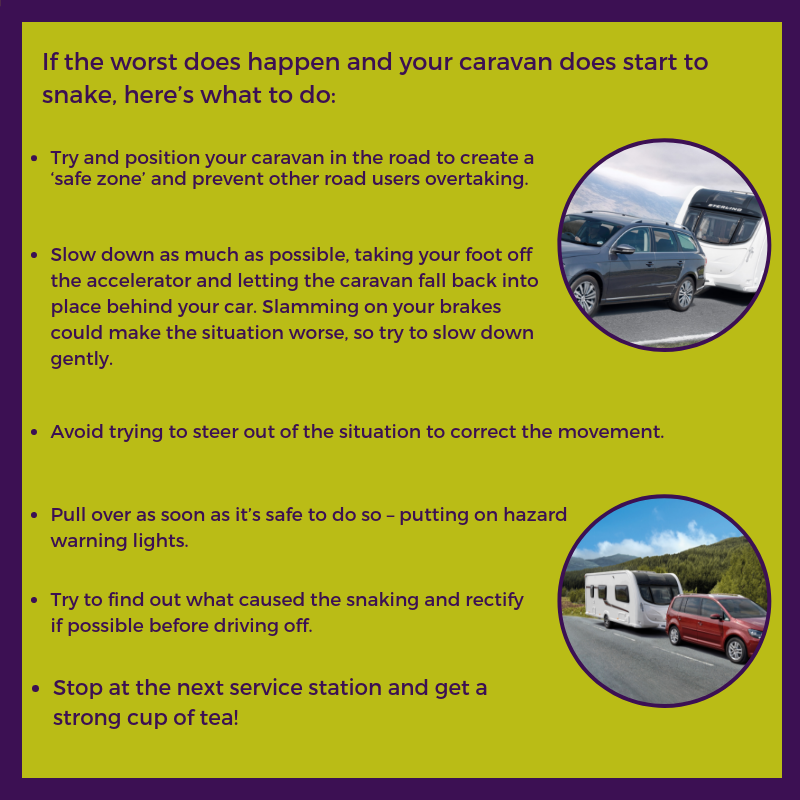The Van Club Becomes the First...
Members enjoy 10 % of their first order at That Leisure Shop, quarterly prize draws, early-bird deals on new product...
Caravan snaking happens when a tow car and caravan become out of sync with each other and veer side to side. This usually happens as a result of a sudden swerve, crosswinds or high speeds, though can also happen when a tyre blows or if the caravan is loaded incorrectly.
Snaking is relatively uncommon thankfully, but can cause serious accidents and major disruption to other road users.
Good towing practice is the first step to prevent snaking, and this begins even before you start the engine. Correctly loading your caravan is vital as one which is unevenly loaded is far more likely to sway. Make certain that the nose of the caravan isn’t overloaded.
Next, make sure your tyre pressures on both your tow car and caravan are at the right pressure. Check out our post on Caravan Tyres for more information about caravan loading.
Snaking can sometimes happen if a caravan is travelling at a high speed and is passed by a larger vehicle like a lorry causing crosswinds. Towing mirrors are therefore essential in alerting a driver to approaching vehicles so that they can slow down.
When it comes to speed, always tow within the legal limit. Don’t feel you need to reach the limit, and take into account weather conditions like rain or high winds.
Anti-snaking stabilisers are available, often attracting a discount on your caravan insurance if you use one. These devices automatically apply the caravan brakes if a snaking movement is detected and cost in the region of around £200.

Including news updates, blog notifications and all information you need to know about insurance, caravans and equipment.